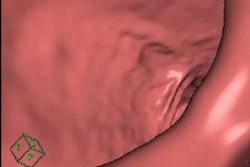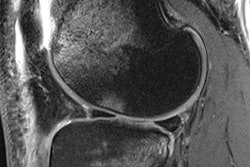Dear AuntMinnieEurope Member,
The raging controversy surrounding overdiagnosis in screening mammography persisted throughout 2016, and it's showing no signs of subsiding.
Researchers from the Nordic Cochrane Centre in Copenhagen have voiced new concerns over whether screening provides the promised benefits of reduced mortality, less invasive treatment, and reduced disease burden. They say 17 years of organized breast screening in Denmark has not cut the incidence of advanced tumors but has increased the incidence of nonadvanced tumors and ductal carcinoma in situ. Read more in the Women's Imaging Community, or by clicking here.
Also, don't miss our thought-provoking column by a radiologist who was diagnosed with breast cancer at the age of 38. What lessons did Dr. Jennifer Adams learn from her experience as a patient? How has it helped her clinical practice? Click here to find out.
Greater speed in MRI can lead to easier visualization of pathologies and functional anatomy, better imaging within shorter time slots, improved patient care, and increased productivity, according to Swiss radiologists. They think accelerated MRI, which combines dedicated hardware and parallel imaging algorithms, has been developed and improved over the last three decades. Learn about their work in the MRI Community, or click here.
Meanwhile, Italian researchers have joined up with Japanese and U.S. colleagues to participate in a new study on CT colonography. Their findings were presented at RSNA 2016 and are worth a close look. Click here to do so.
Gynecology cases often involve multimodality imaging, which can be complex, and this prompted the gynecology oncology tumor board at London's Imperial College to offer some practical advice at the same Chicago meeting. To discover what the group had to say, click here.



















